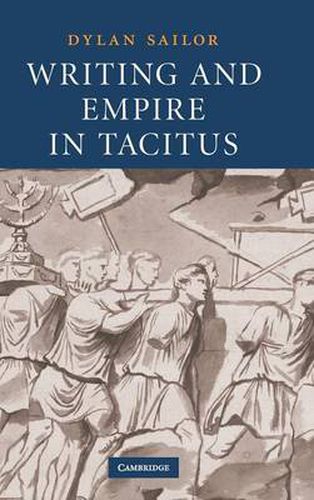Readings Newsletter
Become a Readings Member to make your shopping experience even easier.
Sign in or sign up for free!
You’re not far away from qualifying for FREE standard shipping within Australia
You’ve qualified for FREE standard shipping within Australia
The cart is loading…






Writing and Empire in Tacitus examines how Tacitus’ historiographical career serves as an argument about his personal autonomy and social value under the peculiar political conditions of the early Roman Empire. Following the arc of his career from Agricola through Histories to Annals, this book focuses on ways in which Tacitus’ writing makes implicit claims about his relationship to Roman society and about the political consequentiality of historical writing. In a sense, this book suggests, his literary career and the sense of alienation his works project form the ideal complement to his very successful political career, which, while desirable, might nonetheless give the impression of degrading submission to emperors. The discussion combines careful attention to the historian’s explicit programmatic discussion of his work with larger-scale analysis of stretches of narrative that have unspoken but significant implications for how we view the function and importance of Tacitus’ work.
$9.00 standard shipping within Australia
FREE standard shipping within Australia for orders over $100.00
Express & International shipping calculated at checkout
Stock availability can be subject to change without notice. We recommend calling the shop or contacting our online team to check availability of low stock items. Please see our Shopping Online page for more details.
Writing and Empire in Tacitus examines how Tacitus’ historiographical career serves as an argument about his personal autonomy and social value under the peculiar political conditions of the early Roman Empire. Following the arc of his career from Agricola through Histories to Annals, this book focuses on ways in which Tacitus’ writing makes implicit claims about his relationship to Roman society and about the political consequentiality of historical writing. In a sense, this book suggests, his literary career and the sense of alienation his works project form the ideal complement to his very successful political career, which, while desirable, might nonetheless give the impression of degrading submission to emperors. The discussion combines careful attention to the historian’s explicit programmatic discussion of his work with larger-scale analysis of stretches of narrative that have unspoken but significant implications for how we view the function and importance of Tacitus’ work.